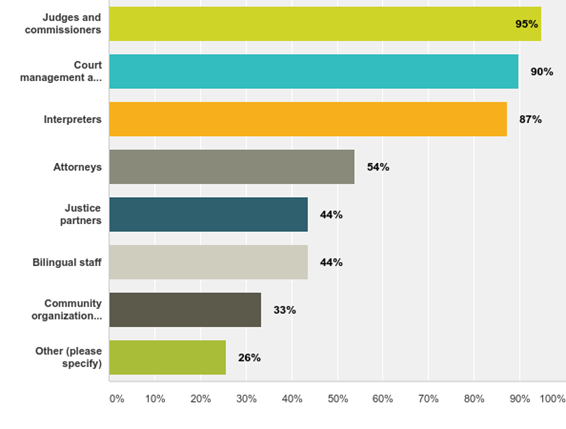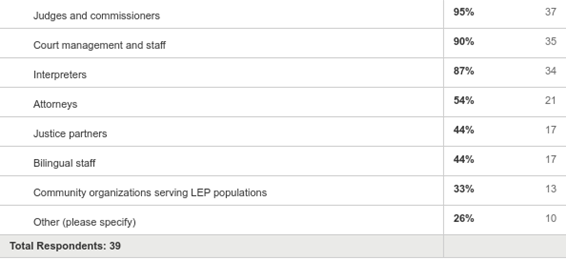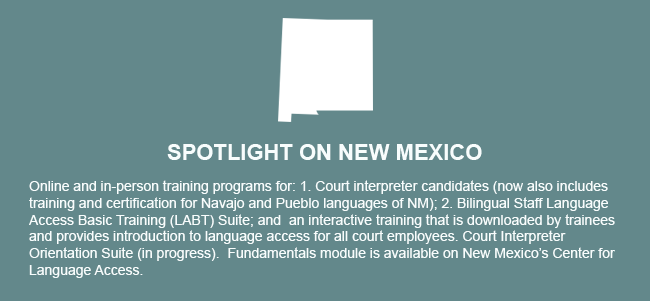Establish programs to train courts, justice partners, and stakeholders on language access services, requirements, and mandates.
Action Step 4 recommends establishing programs to train court staff, justice partners, and stakeholders on language access services, requirements, and mandates. At the Summit, 75% of states identified the need for action steps related to training. As the results of this survey demonstrate, jurisdictions followed through on their action plans and accomplished even more than they set out to do.
The majority of jurisdictions report that they have training programs on statewide language access services and/or their LAP. Over 80% of jurisdictions report that they have a training program.

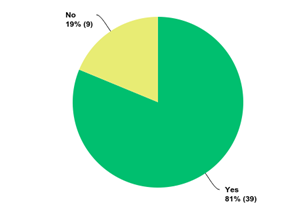
Audiences for Training
Due to the fact that LEP court users frequently require language assistance at different points of contact in the court, as well as at points of contact prior to court involvement, training and education are greatly beneficial to a wide range of people in the court and associated with the court.
The survey asked respondents who they are training. Jurisdictions are predominantly training judges and commissioners, court management and staff, and interpreters. They also conduct trainings, while on a lesser scale, for attorneys, justice partners, bilingual attorneys, and community organizations serving LEP populations. (Fig. Q15.)
In addition to the persons listed in Q15, jurisdictions reported that they also train law clerks at annual meetings and all branch contracted providers. Also, some stated that they hold trainings for a variety of forums, ranging from judicial seminars to bar association meetings. One respondent noted that they include Language Access training in New Judge Orientation and New Employee Orientation. Another state stated that while they provide trainings for new judges, they hope to expand to trainings for current judges and court staff.
Q15: Who are you training?
Training Topics
Training is essential in stakeholders’ understanding of language access issues and the implementation of language access services. Also, training promotes compliance with policies and procedures. Holding statewide trainings are important to ensure that standardized language services are being provided across court locations.
Jurisdictions have been training on a wide-range of topics. The top areas in which jurisdictions conduct training are the review of the role of interpreters and/or interpreter code of ethics, state language access policies and compliance requirements, and the use of various language access services, including interpreters, bilingual staff, and translated material. They also frequently train on the use of technology, Title VI of the Civil Rights Act of 1964 and federal guidance, the process for identifying LEP court users, and their LAPs.
In addition, jurisdictions reported additional topics, including diversity training, cultural competency, and utilizing LEP interpreters in the courtroom.
Q16 On which topics are your conducting training?
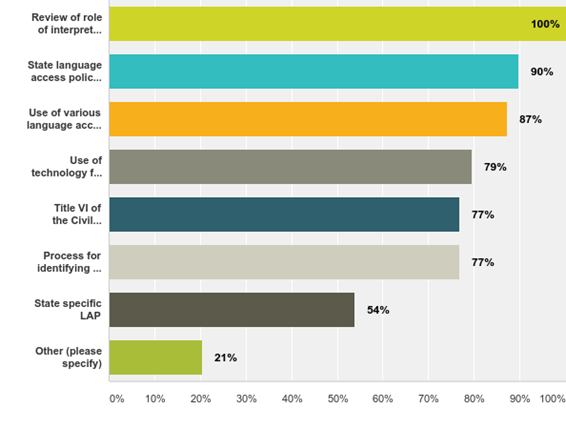
Training Tools
The majority of jurisdictions (41 of 48) report that they have developed language access tools. Over 92% of respondents have developed bench cards. Other training tools include trainings provided at conferences or meetings in collaboration with bar associations and on-line and video trainings.
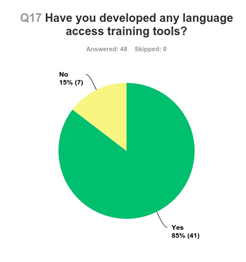
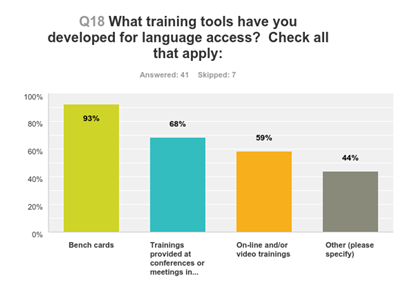
In addition, jurisdictions report utilizing the following tools: language access toolkits, webinars, online resources, attorney and clerk guidelines, counter cards-hands on technology training at public counters, interpreter and judges quick guide to language access, online interpreter training, online Q&A for judges, and court rule training.








